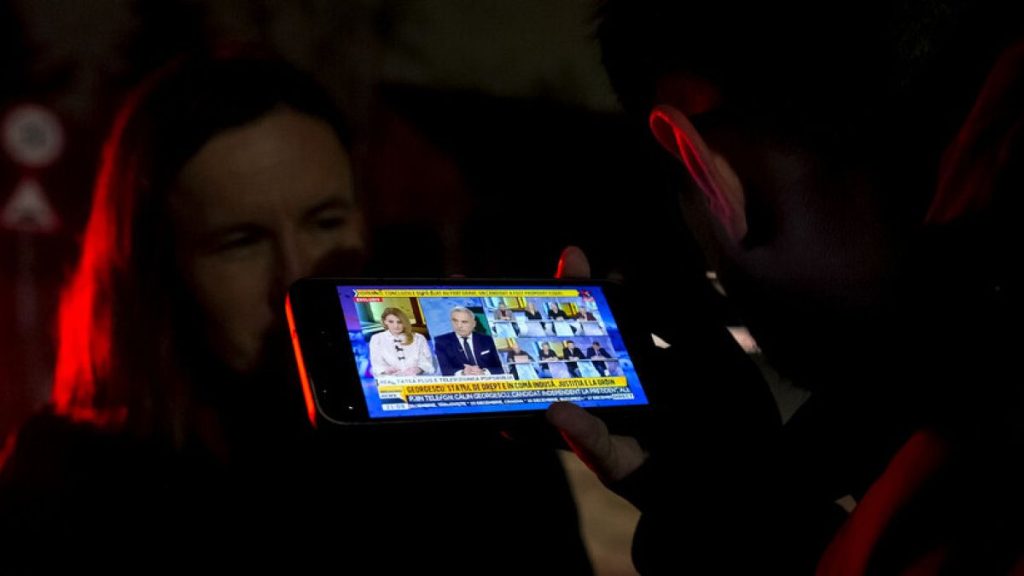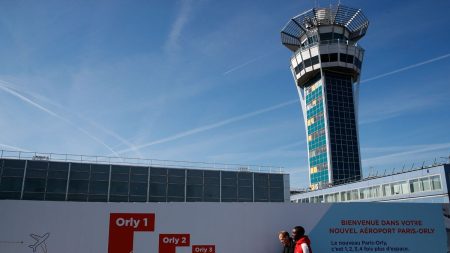The Romanian political landscape was thrown into turmoil following the Constitutional Court’s (CCR) decision to annul the results of the first round of the presidential election and cancel the scheduled runoff. This unprecedented move stemmed from allegations of Russian interference, raising concerns about the integrity of the democratic process and sparking a wave of reactions across the political spectrum.
Călin Georgescu, the independent far-right candidate who unexpectedly won the first round, vehemently denounced the CCR’s decision, characterizing it as a “coup d’état” and a subversion of democracy. He accused the court of being influenced by political agendas, thereby compromising the principles of justice and the rule of law. Georgescu’s claims painted a picture of a compromised judicial system, subservient to political machinations, thus eroding the very foundations of democratic governance. His strong words resonated with some segments of the population, fueling a sense of distrust in the established institutions and adding to the already charged atmosphere.
Echoing Georgescu’s sentiments, Elena Lasconi, the reformist candidate who was set to face him in the runoff, also condemned the CCR’s ruling, labeling it as illegal. Lasconi expressed her dismay at what she perceived as the dismantling of decades of progress towards democracy, referencing the 1989 revolution that ended communist rule. Her condemnation underscored the perceived gravity of the situation, with the annulment seen as a setback for democratic values and the culmination of long-fought efforts to establish a free and fair electoral process. The annulment consequently triggered a sense of disillusionment among those who believed in the progress made since the fall of communism.
Incumbent President Klaus Iohannis, while respecting the court’s decision, pledged to remain in office until a new president is elected. Iohannis revealed that his decision to convene the National Security Council was prompted by intelligence reports suggesting “massive illegal election support” for Georgescu, despite the candidate’s claims of zero campaign spending. Iohannis pointed to foreign interference, specifically linking it to a foreign country, further escalating the situation and raising concerns about external influence in Romanian politics. His statement provided a context for the CCR’s decision, framing it as a necessary measure to protect the integrity of the electoral process against foreign meddling.
Reactions to the annulment within the Romanian political establishment were divided. Prime Minister Marcel Ciolacu, the Social Democratic party’s candidate in the first round, supported the CCR’s decision, citing declassified documents that purportedly revealed Russian intervention aimed at distorting the election results. Ciolacu called for investigations to determine those responsible for attempting to manipulate the outcome of the election, highlighting the need for accountability and transparency in the electoral process. Conversely, George Simion, the leader of the far-right Alliance for the Union of Romanians, viewed the court’s action as a “coup d’état” but discouraged street protests, advocating for democratic means to challenge the system. This divergence in opinions reflected the polarization within Romanian politics and the different perspectives regarding the CCR’s intervention.
The annulment of the election followed a series of controversial events surrounding Georgescu’s candidacy. His surprise victory in the first round raised eyebrows due to his rapid rise in popularity, particularly on social media platforms like TikTok. Declassified intelligence reports suggested that Georgescu’s online success was not organic but rather the result of a coordinated campaign by a “state actor” using sophisticated methods to manipulate public opinion. The intelligence agencies pointed to the sudden activation of a pre-organized sleeper network on TikTok two weeks before the election, coordinated through Telegram, a platform known for its encrypted messaging capabilities. The reports further revealed substantial financial backing for Georgescu’s campaign, contradicting his claims of relying solely on volunteers. These revelations raised serious concerns about the legitimacy of Georgescu’s victory and the extent of foreign interference in the Romanian electoral process.
Adding to the controversy, the European Commission urgently requested information from TikTok regarding its role in the Romanian elections. Expressing concern over potential foreign online influence operations, the Commission sought clarification on the platform’s involvement in the dissemination of information and its potential impact on voter behavior. This request highlighted the growing scrutiny of social media platforms and their role in shaping political discourse, particularly in the context of elections. The lack of response from TikTok further intensified the concerns surrounding the platform’s transparency and accountability. The convergence of these factors—the CCR’s annulment, the allegations of Russian interference, the controversy surrounding Georgescu’s campaign, and the scrutiny of social media platforms—created a volatile political climate in Romania, raising fundamental questions about the integrity of its democratic institutions and the vulnerability of its electoral process to manipulation.














